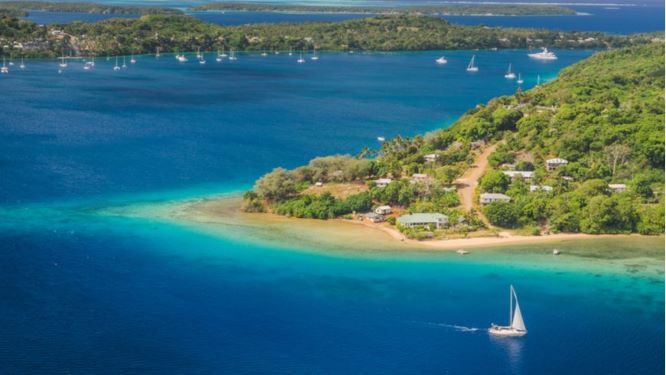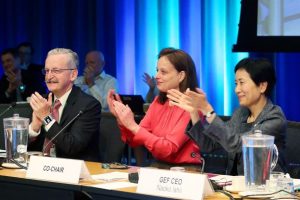



Naoko Ishii, GEF CEO and Chairperson, said the new work programs pursue a new approach being pioneered by the GEF, and signify “a new way of doing business,” and, she added, “a new phase for GEF’s strategy and implementation.”
“We at the GEF have been evolving our strategy over the past few years,” Ishii said earlier in the week. “The GEF 2020 strategy adopted by the Council in 2014 shifted our focus from symptoms to causes or drivers of environmental degradation. Transformation, or systems change, is a centrepiece of our efforts to maximise impacts, and integration as an effective way of delivery.”


The GEF was established on the eve of the 1992 Rio Earth Summit to help tackle the planet’s most pressing environmental problems.
India, among the world’s most vulnerable countries to climate change, is both a donor and a recipient of GEF funds, an international partnership of 183 countries. The 56th GEF Council meeting passed its biggest ever work program, totaling $865.9 million from its Trust Fund.
The work program range from an ambitious $232 million integrated program aimed at a “transformational shift in the agriculture and land use systems that are major drivers of environmental degradation around the world” to helping fishing people in Timor-Leste, improving the management of soils in Caribbean islands, and tackling the illegal world wildlife trade.
The meet was then followed by a meeting of two smaller GEF funds — the Least Developed Countries Fund (LDCF) and the Special Climate Change Fund (SCCF) — which approved work programmes adding up to a further $101.57 million.
Besides the Impact Programs, another project will develop local economies in Africa, Asia and Latin America to provide alternative sources of income and counter the illegal wildlife trade.
In all, these projects are expected to benefit 2.1 million people (half of them women), bring 608,509 hectares of land under climate-resilient management, provide 58,360 people with greater capacity to identify risks from the changing climate, and take measures to adapt, and affects 101 policies, plans and development frameworks.
In a significant move toward advancing green energy and industrial growth in the state, Himachal…
Golabl chemical conglomerate BASF has announced that its now offering the world’s first biomass-balanced polyethersulfone…
In a crucial stint to bolster the biogas sector and sustainable dairying in the country,…
TotalEnergies SE has received approval to proceed with its Middlebrook solar and battery project in…
Andhra Pradesh Chief Minister Chandrababu Naidu has inaugurated the Rs 1,000-crore green hydrogen plant of…
The BITS Pilani has developed an innovative solution for managing landfill leachate, domestic septage, and…